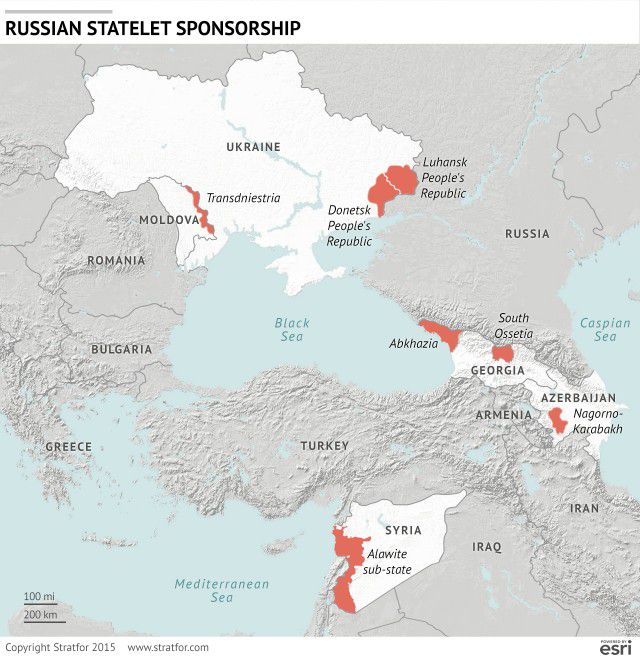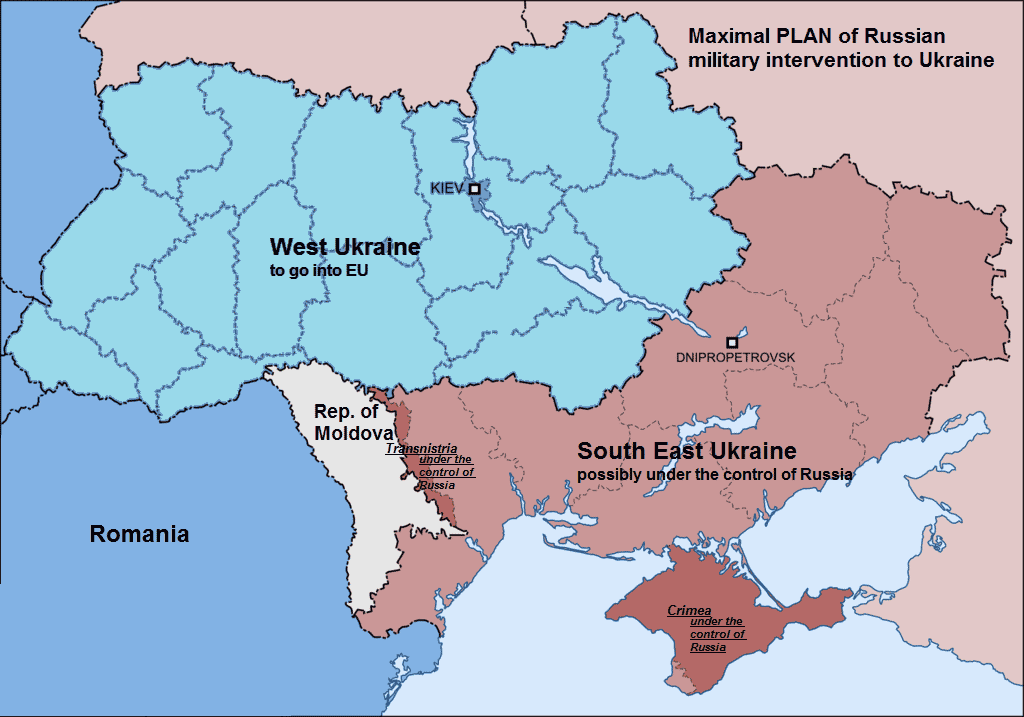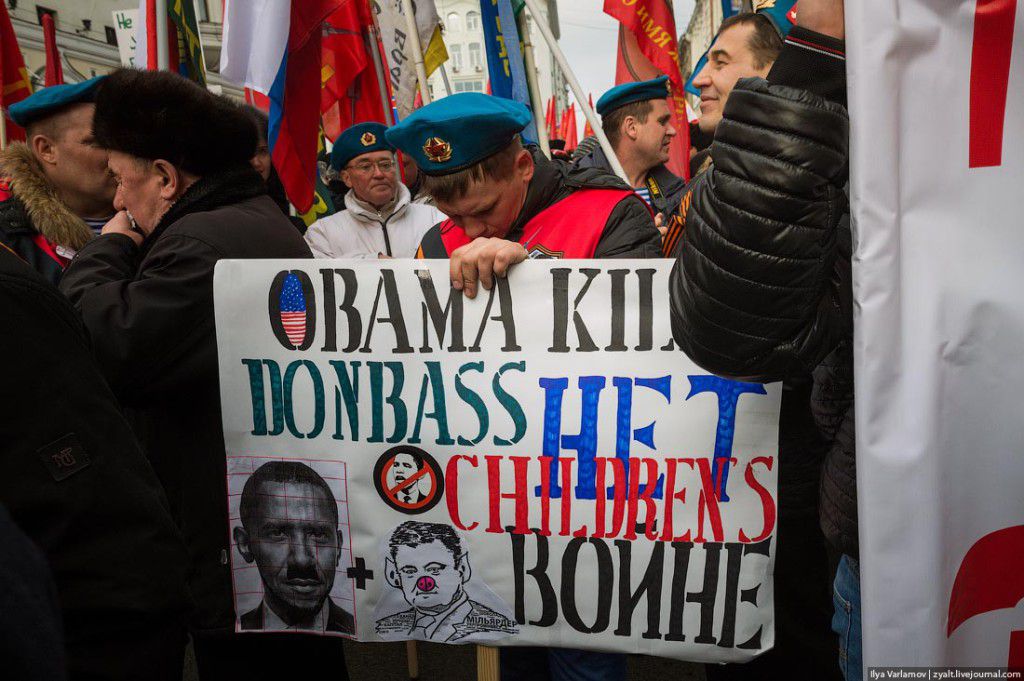Very few people think about it seriously, but as it turns out, nearly all hybrid wars of recent decades have similar motives for unleashing the conflict. Moreover, you won’t find any analysis of back stories of conflicts with Russia in the open access. At best, the Russian version of Wikipedia will be marked with a chronology of events, repeatedly proven by Russian censorship.
What’s the secret?
The banality of many modern wars with Russia lies in their main motive – ethnic nationalism.
For a reference: Russian ethnic nationalism seeks domination of the Russian ethnic group over others in society and the political system. Ethnic nationalism was one of the major causes of conflicts in the post-Soviet space. It is backed by Russian laws, as well as focused on historical, religious and cultural traditions of Russia. Its base is the Russian-speaking population, an opinion of which adjusts the nationalist-leaning network in Russia and abroad.
Ethnic nationalism may be in a “ready” state for a long time. However, when it is released, “the ethnic tempest’’ is able to destroy the entire nation. There are more than enough examples.
For illustration purposes, let’s take a look at a close to us post-Soviet space:
The Nagorno-Karabakh conflict in 1988 was unleashed after the NKAO (Nagorno-Karabakh Autonomous Oblast) soviet of people’s Deputies adopted a decision on accession of their region to the Armenia. Ethnic contradiction was that, in their opinion, there were allegedly more Armenians in Azerbaijan region, and due to this fact the territory should belong to the Armenia. Characteristically, Russia supported side of the Armenia in this ethnic contradiction;
Transnistrian conflict in 1989 is based on the alleged harassment of the Slavic traditions of Moldova. Russia initiated the controversy. The confrontation was reflected in the reluctance of a small Russian-speaking part of the population to translate from Moldovan alphabet to Latin and to work with clerical in Moldovan language;
The Abkhaz conflict in 1989 – began with the Abkhazia’s decision to secede from Georgia. The catalyst for the conflict was made by Russia, whose troops fought on the side of the Abkhazia. In 2002, Russian institutions in the Abkhazia issued Russian passports for everyone, to register Georgians Abkhazians as Russians. It was a so called “Passport” annexation of Georgian nationality. Almost identical in its sense ethnic story developed in South Ossetia at the same time.
See also:The Logic and Risks Behind Russia’s Statelet Sponsorship – Stratfor
Annexation of the Ukrainian Crimea by Russia in 2014 – in foundation of its history is the idea about forced ukrainization of ethnic Russians living in Crimea. The reason for the escalation of the situation and carrying out Russian “emergency referendum” was triggered by the alleged instructions of the Ukrainian authorities to send “Bandera formations” to the peninsula.
The occupation of a part of the Ukrainian Donbas in 2014 – the motive for the war was the opinion about the alleged harassment of ethnic Russians in eastern regions of Ukraine. By and large, the situation is a continuation of the Crimean annexation by Russia, which had plans of Novorossiya and extension connections by land of unrecognized republics with Transnistria.
Russian ethnic nationalism is present not only on the post-Soviet territory. Experts and politicians from different countries insist that the motives for the manifestation of the Russian ethnic domination of Russia are already evident in the Baltic countries, Poland, Hungary and other European countries. In their observations, their manifestation has a non-aggressive nature at the moment. In a word, the mechanism of ethnic nationalism was effectively tested in many conflicts or domestic contradictions.
Specialists distinguish three degrees of influence in social and political consciousness.
The first wave of ethnic nationalism is manifested in slight political dominance (Russia-elder brother in unified family of Nations). This situation can last for decades. Speaking about Ukraine, such a period probably should be measured in centuries.
The second wave of ethnic nationalism is manifested through active informational pressure and outbreaks in cultural-historical or political plains. For Ukraine, such examples occurred in 1993, when 80% of the former Soviet Black Sea fleet ships raised Russian flags and “expressed” a desire to serve Russia. Or, say, in 2004, when, under the auspices of dissent allusions of Ukraine with the results of the presidential elections, “Autonomous South-Eastern Ukrainian Republic’’ was established. As a rule, the “second wave” spurts reveal weaknesses in defense against threats of ethnic nationalism.
Third wave-ethnic nationalism develops very aggressive traits and turns into an open military confrontation. As illustrative example is the burst of activity of the Russian ethnic nationalism in the Southern and Eastern regions of Ukraine at the outset of 2014. At that time, the main attributes of all rallies have become Russian flags, slogans “Russia, save Donbas” or “Donbas is Russia”.
“Putin, send army to Slovyansk!” (Slovyansk is the Ukrainian city captured by Russian troops in April 2014. It was the main terrorist base until July 2014, when Ukrainian army liberated the city)
In addition, this period was characterized by extreme forms of ethnic pressure – Russian referendum in Crimea under the supervision of the “green men” units or, say, creating a “pro-Russian’’ enclave with the help of Russian troops in Donbas.
Ethnic pressure shall be carried out on certain areas of influence, among which:
- direction of culture and tradition: the spread of views on Slavic identity, ancient civilization, the priority of Russian orthodoxy, etc., the carrier which allegedly is Russia;
- historical direction: establishing a new Russian history, in which Crimea and Donbas, as well as other regions of Ukraine were “native-Russian lands”. In this regard, it is indicative of Putin’s speech addressed to young Russian historians, in which the Russian President identified the scientist tasks for writing “a qualitatively new Russian history”;
- ideological education: formation of society’s ideology “Russian world”, simulation of a large number of enemies around Russia and creating the illusion of the need to protect “Russian land”. The brightest example of this aspect is Government support for the Kazachestvo of Russia, “the Kremlin’s war-fighting capabilities motivated by Russian national patriotism’’;
Inherently-ethnic nationalism in Russia constitutes a threat to national security in such manifestations as Ukraine and other countries, where there are Russian diaspora communities or other pro-Russian organization today. They are the channels for distribution of nationalist ideas that are broadcasted from the Kremlin walls. In recent years, there were rather a lot of such expressions from Russian experts and politicians. For example:
- the Russian Ambassador to Ukraine M. Zurabov stated in August 2012 that Russia will implement the program of financing Russian subjects in Ukraine in schools of the State. The program was about inclusion of optional subjects of Russian history, literature and geography in the Ukrainian educational program;
- Director of the Institute of CIS countries (Commonwealth of Independent States – edit.) was openly saying in May 2013 that he was going to create the Russian national movement in Ukraine;
- political scientist and journalist S. Gorbachev noted in 2013 that Moscow must conduct the operation on forcing Ukraine to friendship;
- Commander of the Black Sea fleet of Russia A. Fedotenkov said in 2013 that Sevastopol is a “city of Russian sailors”, and Russia was not preparing to leave from here until 2042.
- LDPR leader Vladimir Zhirinovsky raised a question about the division between Russia, Ukraine, Romania, Hungary and Poland in March 2014 at the session of the State Duma of the Russian Federation. It is significant that after such odious statements, Zhirinovsky was denounced by none of Russian parliamentarians;
- Chairman of the party “The Other Russia” Eduard Limonov said last week in his article on the future of Ukraine that, ultimately, it will remain as nine regions around Kyiv. “We, Russians, take land inhabited by our Russian brothers: Kharkiv, Odesa, Zaporizhia, Kherson, Mykolaiv Oblast”;
Of course, this is not a definitive list of statements of Russian leaders about ethnic Russian pressure on Ukraine. But even in these examples alone it is easy to trace Kremlin’s intention to ethnically frame Ukrainian society.
It is clear, that the Ministry of Foreign Affairs of Russia has started to develop a new concept of foreign policy.
We will remind, that the foreign policy Concept of the Russian Federation (12.02.2013 g) along with your application 1 (18 g) defined the purpose and direction of the impact of “soft power” of Russia vis-à-vis other States.
See also: “Hybrid warfare” as a key instrument of the Russian revenge geostrategy
In those documents Ukraine was considered to be a “priority partner of CIS”, which was included in the Kremlin’s plan of “the depth of integration processes”. In short, ethnic nationalism constitutes a serious threat to the national security of Ukraine, as stated in the national security strategy of Ukraine (section. 3.1.3.). Objectives for today’s Russian ethnic nationalism in Ukraine remain:
- the population of the regions in which the occupation authorities established – the Crimea peninsula and part of Luhansk and Donetsk regions;
- the population of the regions in the Southern and Eastern regions of Ukraine, which remains perceptible to the influence of the Russian ethnic nationalism;
- the population of Ukraine, which is relevant to Russia on various grounds;
- national minorities of Ukraine, including the Russian diaspora, the Trans Carpathian Rusyns and others;
Ukraine is in a State of perpetual (albeit undeclared) war with Russia. This allows the Kremlin to use various pretexts to enhance ethnic dominance, using such scripts (as an option):
- issuance of Russian passports in the occupied regions of Donetsk Basin, thus repeating the “Georgian scenario”;
- swinging inter-ethnic relations and conduct of the referendum in “peaceful” regions of Ukraine (e.g. in Mariupol, Odesa or in Transcarpathia);
- massive statement of “pro-Russian” Ukrainians about the desire to see Ukraine in the Russian international associations;
- numerous speculations on the subject of harassment of the Russian-speaking Ukrainians rights on any occasion and more;
With a view to identifying and timely responding to such threats, Ukraine requires monitoring of internal political and informational situation, which forces local authorities to be carry it out. And as a means of counteracting ethnic threats – information about history, culture, traditions of Ukraine is needed, which is not sufficient at the moment. If the Russian ethnic nationalism was able to penetrate into the Ukrainian audience, it means that our State has weak immunity “ethnic”.
Vyacheslav Gusarov, information security expert group CMPS “Center for Military and Political Studies”, for “Information Resistance”, translated by Anna Walden for UaPosition




